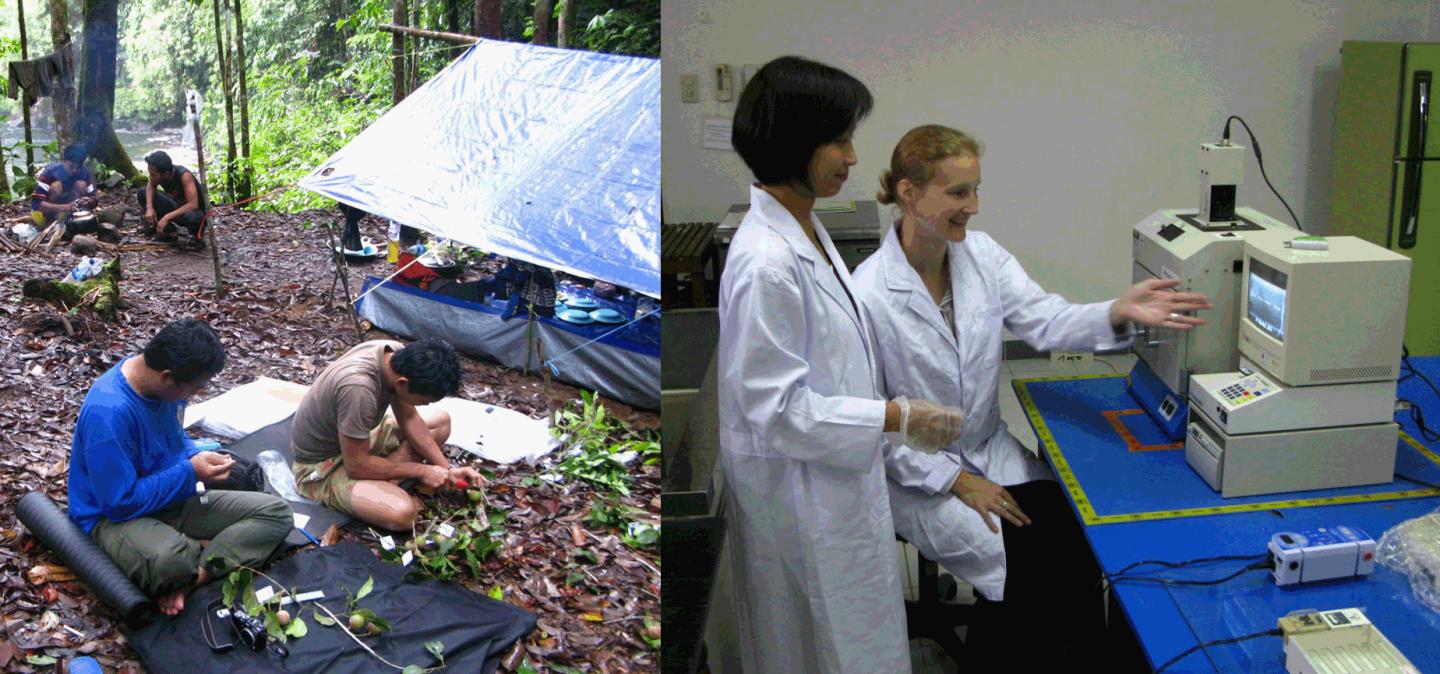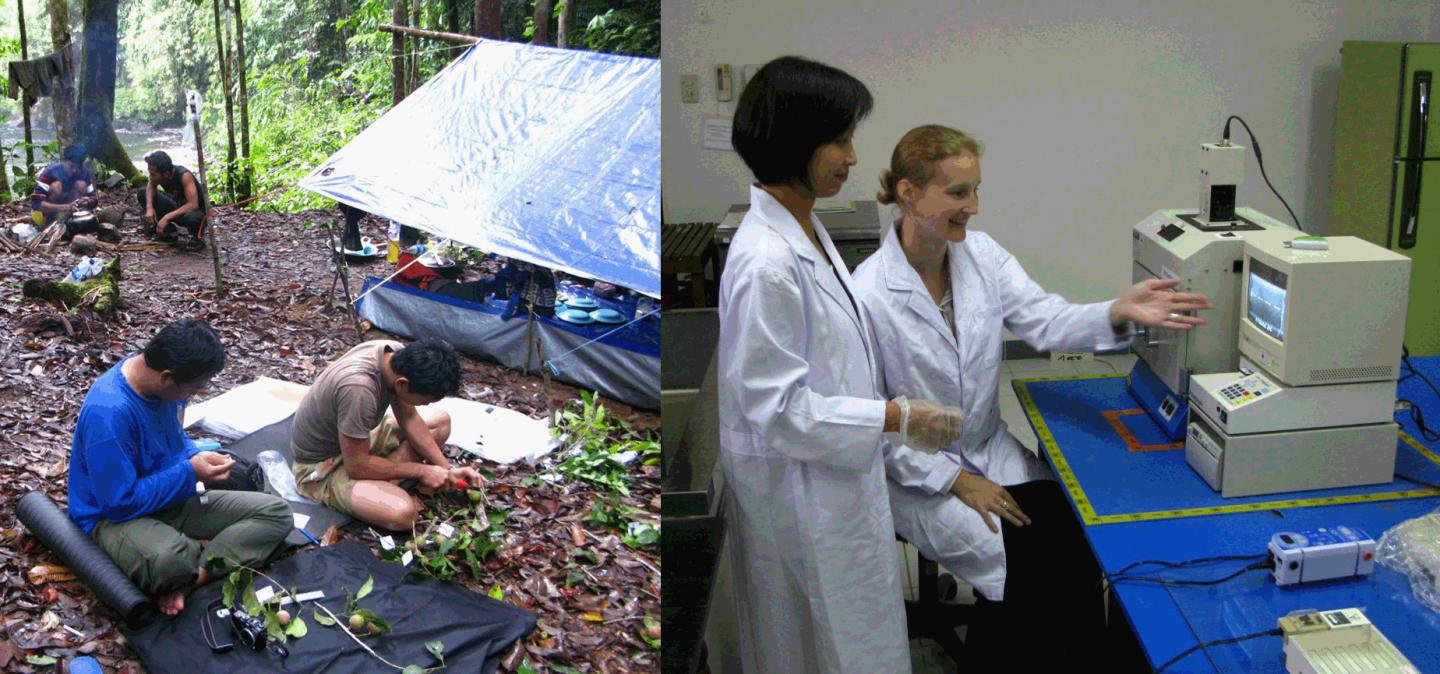
Credit: Campbell O. Webb
Globally, biodiversity is concentrated around the equator, but the scientific institutions generating DNA sequence data to study that biodiversity tend to be clustered in developed countries toward the poles. However, the rapidly decreasing cost of DNA sequencing has the potential to change this dynamic and create a more equitable global distribution of genetic research. In research published in a recent issue of Applications in Plant Sciences, Dr. Gillian Dean and colleagues show the feasibility of producing high-quality sequence data at a laboratory in Indonesia.
For many laboratories in the developing world, a lack of funding and practical experience are major hurdles to generating their own DNA sequence data. However, the financial, technical, and logistical burden of producing DNA sequence data has dropped precipitously in recent years. DNA sequencing is increasingly done at centralized "core" facilities dedicated to producing high-quality sequence data from prepared samples at high volume and low cost. This means that laboratories need only do initial processing of tissue to prepare DNA samples to be sent to a sequencing core facility.
Molecular techniques like DNA extraction, purification, and PCR, necessary to prepare samples for sequencing, are now quite well established, with protocols that are relatively simple using fairly inexpensive reagents (ingredients). "It can seem daunting to set up a molecular biology lab, but as methods become cheaper and more robust, it really is within reach of more and more researchers," explains Dr. Gillian Dean, the lead author of the study. "We want to share our expertise to help people set up these methods, and take full advantage of the kind of data that can be generated." Accordingly, Dr. Dean and colleagues compared methods for generating DNA sequence data at the Molecular Systematics Laboratory at the Herbarium Bogoriense, Research Center for Biology, Indonesian Institute of Sciences (LIPI), in Cibinong, West Java, Indonesia. The DNA barcode data generated in this pilot study was part of a project to create an open access digital flora of Gunung Palung National Park in West Kalimantan, Indonesia.
Helping laboratories in developing countries set up the capacity to produce DNA sequence data expands the number of contributors to DNA sequence databases, which is good for science generally and may be helpful for any number of bioinformatic analyses. According to Dr. Dean, "The wider scientific community benefits by having more capacity in terms of people producing data." But it also strengthens scientific institutions in the developing world, expanding the kinds of studies scientists can perform and questions they can answer.
"The ability to prepare the DNA of interest for sequencing means that scientists in developing countries have more autonomy when it comes to designing projects, to choose exactly the data they generate, and for what purpose," explains Dr. Dean. "It also enables those scientists to have equal access to and control over the resulting data." Aside from the scientific benefits, there is a legal rationale for expanding the capacity to generate DNA sequence data into more countries, as many biodiverse countries have enacted laws restricting access to sampling for studies conducted outside their borders.
Dr. Dean also stresses the ethical dimension of expanding the capacity of molecular laboratories in developing countries, which helps to create a more equitable global scientific establishment and address the legacy of colonialism. "I think the main point is that we have to be more inclusive of scientists from countries where samples originate. Historically, researchers from more developed countries have arrived and taken specimens back to their home country, and in many cases have not shared the resulting data with the country of origin," says Dr. Dean. "We must move away from this, and start to have an equitable approach to doing research in less developed countries." This study represents a step on that long journey.
###
Gillian H. Dean, Rani Asmarayani, Marlina Ardiyani, Yessi Santika, Teguh Triono, Sarah Mathews, and Campbell O. Webb. 2018. Generating DNA sequence data with limited resources for molecular biology: Lessons from a barcoding project in Indonesia. Applications in Plant Sciences 6(7): e1167. https://doi.org/10.1002/aps3.1167
Applications in Plant Sciences (APPS) is a monthly, peer-reviewed, open access journal focusing on new tools, technologies, and protocols in all areas of the plant sciences. It is published by the Botanical Society of America, a nonprofit membership society with a mission to promote botany, the field of basic science dealing with the study and inquiry into the form, function, development, diversity, reproduction, evolution, and uses of plants and their interactions within the biosphere. APPS is available as part of the Wiley Online Library.
For further information, please contact the APPS staff at [email protected].
Media Contact
Beth Parada
[email protected]
@Botanical_
http://www.botany.org
Related Journal Article
http://dx.doi.org/10.1002/aps3.1167





